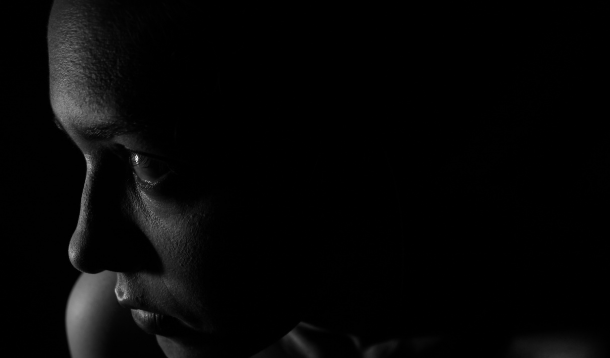
Last week, a leaked document indicating the Supreme Court’s plans to reverse Roe v. Wade sent shock waves across the United States and around the world.
Since then, the opinion’s author, Justice Samuel Alito, has come under fire for citing how abortion has led to a crisis in America’s “domestic supply of infants.”
In other words, since Roe v. Wade went into effect in 1973, so many women were aborting their pregnancies that those wanting to adopt (mostly middle- and upper-class white people) were having a difficult time finding infants. Babies, it seemed, had become just another supply chain headache, like building materials and infant formula.
If this sounds gross, it’s because it is.
If this sounds like privilege, it’s because it is.
If this sounds completely tone-deaf, it’s because it is.
As is often the case, discussion of abortion has led to a discussion on adoption, as in: why don’t women put their children up for adoption instead of getting an abortion?
To answer this question, consider that denying abortions is still forced motherhood. It’s still a denial of body autonomy and a woman’s right to choose if and when she becomes a mother. Not only does criminalizing abortion deny her the right to determine what the next seven, eight, nine months of her life look like, it glosses over the pain and suffering, the grief, and the loss, many birth mothers experience. Because women who carry then relinquish their children are still mothers, and they don’t simply just get on with their lives. In fact, a comprehensive 1999 study found that “the relinquishing mother is at risk for long-term physical, psychological, and social repercussions.” This same study found that relinquishing mothers suffered even more grief than women whose children had died.
Justice Alito’s reference to adoption’s supply and demand problem proves what professionals in the field have known for decades: that adoption has become (and perhaps always was) a predatory, for-profit industry. As such, adoptable children have become commodities.
In her book, American Baby, Gabrielle Glaser recounts America’s shadow history of adoption, describing the many ways young and unwed mothers were forced by their parents and church leaders to give birth in another city under a false name before being shamed and coerced into giving up their children. Money almost always exchanged hands, and still does. (Estimates indicate that private, domestic adoption in the United States today costs $20,000-$40,000.)
Now, social media gives wannabe parents a tool to market themselves. As Mirah Riben recounts in a medium.com article, parents seeking infants to adopt can now exploit another woman’s crisis by purchasing Facebook ads and targeting them to “women in college towns.”
To suggest that we’ve come a long way, baby, is a gross inaccuracy.
And let’s not forget how dangerous it already is to simply be pregnant or give birth in the United States – a country with the highest maternal mortality rate in the developed world; a country where Black women are three to four times more likely than white women to die in childbirth; a country where homicide is the leading – leading – cause of death for pregnant people. This is to say nothing of the women and girls who are raped and must now carry the resulting pregnancy to term.
As has been widely reported, banning abortion does not affect the number of abortions performed, but the number of abortions performed safely. When Roe v. Wade is repealed, more women will die for the simple fact of being pregnant, because criminalizing abortion means criminalizing all abortion. Often, the only way to save the life of a woman experiencing an ectopic pregnancy, eclampsia, preeclampsia, or other pregnancy-induced conditions is to perform an abortion. Now, they’ll simply let her die.
Part of the disconnect, the flawed logic behind the “choose adoption” argument is that no one wants to talk about adoption as anything but a wonderful story, a win-win-win that benefits everyone involved. The reason for this, according to Mirah Riben, is that prevailing adoption narratives have historically come from the adoptive parents - people who have every reason to shout adoption’s praises from the rooftops. Of course, they’re happy, they got what they wanted and paid for! Add to that the industry professionals (lawyers, doctors, etc.) who profit from adoption and have a vested interest in maintaining the status quo and it’s no wonder so much of what we know about adoption is at worst a lie and, at best, a Disney-like narrative with more secrets and misdirection than a magic show.
Since adopting my own two children, I’ve learned to be highly critical of the system that made me a mother. Both our adoption experiences were “successful”, but I can’t just shut up and be grateful because doing so would be a disservice to my daughters and their birth mothers, and to everyone else who experiences the devastating, long-term effects of adoption. Despite all the love, attention, and reassurance their father and I give them, my daughters are still growing up feeling unwanted at their core. This is a primal wound that cannot be repaired. If you asked them if they wish they’d never been born at all, I’m honestly not sure what they’d say.
This is not to say adoption is all bad, but it certainly isn’t all good. And using it to justify abortion restrictions incorrectly positions adoption as a solution, without consideration of the very real, very significant complications and complexities that go along with it.
A commitment to improve the lives of at-risk pregnant women through social supports like mental health services, addiction counselling, affordable housing, and low-cost childcare would likely improve family preservation rates. Instead of being steered towards or forced into adoption, these families would have a better chance of staying together. But doing so would further reduce the already precarious “domestic supply of infants,” so don’t hold your breath.